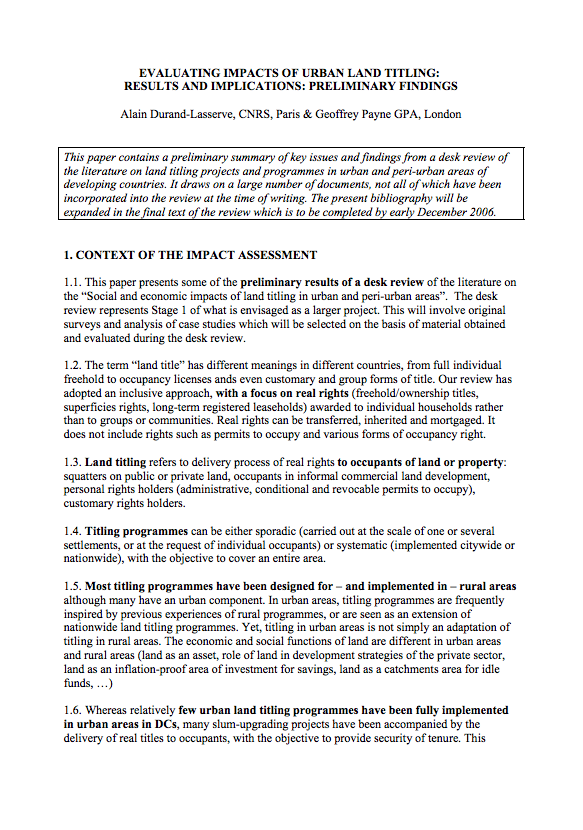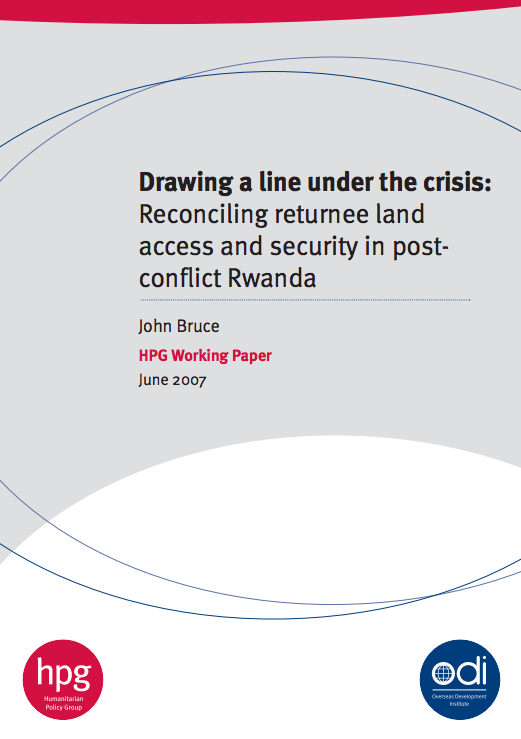The LAND Project is a five year program supported by the United States Agency for International Development (USAID). Its primary goal is strengthening the resilience of Rwandan citizens, communities and institutions and their ability to adapt to land-related economic, environmental and social changes.
Resilience is defined as “the ability to withstand or recover from difficult conditions.” It also comprises the ability of human and ecological systems to recover from shocks or difficult changes, and to transform to a better condition by responding flexibly and creatively to stress factors. In Rwanda, land tends to be one of the primary assets citizens rely on to buffer against difficult conditions and rapid change.
The project’s central objectives are twofold:
1.Increased capacity of local Rwandan institutions to generate high quality, evidence-based research on land-related issues that can be used by the Government, civil society organizations, and Rwandan citizens.
2. Increased understanding of land laws, policies, regulations, and legal judgments on land-related issues by GOR officials, local civil society organizations, research institutes and citizens.
Key outcomes of the project include:
- Holding annual National Land Research Agenda workshops to establish the research priorities of land sector stakeholders that the LAND Project will support. These workshops bring together multiple stakeholders from government, civil society and the research community;
- Supporting research on land-related issues through competitive awards to Rwandan research institutions, universities, and civil society organizations, and providing tailored capacity building assistance to improve research and advocacy capabilities;
- Offering training and other support to legal assistance providers to enhance their capacity to support women and vulnerable populations in understanding and realizing their land rights;
- Training local land authorities on the implementation of the land law and regulations.
- Carrying out research on critical land issues, including gendered land rights in practice, community rights to resources in and around protected areas, and expropriation.
- Managing a land-focused website to improve research, communications, and policy advocacy efforts that are focused on land, and to act as a vehicle for enhancing collaboration between actors working in the land sector;
- Providing organizational development support to civil society organizations supporting women’s land rights.
- Supporting innovative and coordinated communications approaches by civil society and government that enhance the knowledge of Rwandan citizens about research findings and their land rights.
Because the LAND Project is a five year endeavor, we are seeking an institution that has the interest, capacity, skills and resources to eventually take over hosting and maintenance of the website, ensuring it stays up-to-date and relevant to the land sector stakeholder community. If your organization is potentially interested in assuming management of this site, please contact us and tell us why you believe your institution would be an ideal candidate.
Members:
Resources
Displaying 106 - 110 of 149Evaluating Impacts of Urban Land Titling: Results and Implications: Preliminary Findings
This paper contains a preliminary summary of key issues and findings from a desk review of
the literature on land titling projects and programmes in urban and peri-urban areas of
developing countries. It draws on a large number of documents, not all of which have been
incorporated into the review at the time of writing. The present bibliography will be
expanded in the final text of the review which is to be completed by early December 2006.
Evaluating Impacts of Urban Land Titling: Results and Implications: Preliminary Findings
This paper contains a preliminary summary of key issues and findings from a desk review of
the literature on land titling projects and programmes in urban and peri-urban areas of
developing countries. It draws on a large number of documents, not all of which have been
incorporated into the review at the time of writing. The present bibliography will be
expanded in the final text of the review which is to be completed by early December 2006.
Women’s Land Rights in Rwanda: How can they be protected and strengthened as the Land Law is implemented
In Rwanda, two factors make land a highly important and contested issue. First,
Rwanda has the highest person-to-land ratio in Africa. This creates tremendous
pressure on land in a country where most of the population lives in rural areas, and
where agriculture remains the central economic activity. Second, Rwanda is recovering
from massive population shifts caused by decades of ethnic strife and the 1994 civil war
and genocide, which resulted in displaced populations and overlapping land claims.
Land in Rwanda: Winnowing Out the Chaff
Faced with a serious land crisis, the Rwandan government adopted a new national land law and policy. These measures are part of a long historical process of expansion of state control over property, including land and cows. The Government cites security of tenure as the primary objective of the new policy and law. The rigor and speed of implementation of these measures will vary from one community to another. This paper argues that some feel threatened by the new law and will act as they find necessary to protect their interests.
Drawing a line under the crisis: Reconciling returnee land access and security in post-conflict Rwanda
This report is part of a broader comparative effort by As the author worked with colleagues in Rwanda,
two other important dimensions of the Rwandan
experience became clear. Refugee return and land
access in Rwanda has been an extraordinarily
complex matter, with some refugees leaving just in
time for others returning to take up their homes and
lands. Rwanda has important lessons to teach us
about the need to maintain flexibility in dealing with
complexity, and raises questions about whether




